International Consortium for Research on Violence (ICRoV) Conference on:
Rebuilding War Societies
Continuities and New Beginnings
International Conference in Sulaimani, Kurdistan Region of Iraq
October 17-21, 2016
organised by the Felsberg Institute (FI) in cooperation with the University of Sulaimani and the Center for Iraq Studies (CIS) at the University of Erlangen-Nürnberg
The ICRoV Annual Iraq Conference took place in Sulaimani in Northern Iraq from October 17-21, 2016. The Felsberg Institute has organised annual workshop conferences and symposiums in Iraq in cooperation with local and international partners since 2010. For the first time in 2012, emphasis was placed on the topic of “Violence Research”. Since then, Violence Research has become a prominent feature that resulted in the foundation of the “International Consortium for Research on Violence” (ICRoV) in 2013. Since then, these events have been organised in conjunction with the Center for Iraq Studies (CIS) at the University of Erlangen-Nürnberg in Germany.
The 2016 conference venue was the University of Sulaimani and had the conference title of „Rebuilding War Societies.” The specification of “Continuities and New Beginnings” aimed to review recent years while at the same time trying to define future challenges. The fact that the Mosul offensive against the Islamic State started concurrently with the opening day of the conference, and the IS attacks on Kirkuk took place during the course of the event highlighted the topicality and the brisance of the issue.
The participation of more than 500 participants on both conference days indicates that public discussion about the rebuilding of the country and the society amidst ongoing violent conflict is of top priority. The large number of students and young researchers among the participants offer hope that the younger generation will be ready and able to face the challenge and work constructively towards a peaceful future for Iraq and the Kurdistan region. As co-organisers we hope that we can support this development.
The conference itself, as well as the many accompanying discussions, have given us some interesting insights into both the practical and the academic aspects of rebuilding war societies and encouraged us to rethink the entire complex of post war reconstruction measures some 25 years after the collapse of the blocs. One result of these discussions is the decision of FI and ICRoV to continue exploring the subject together with the Centre for Iraq Studies and make the topic of “Rebuilding War Societies” a focal point of research for the forthcoming years.

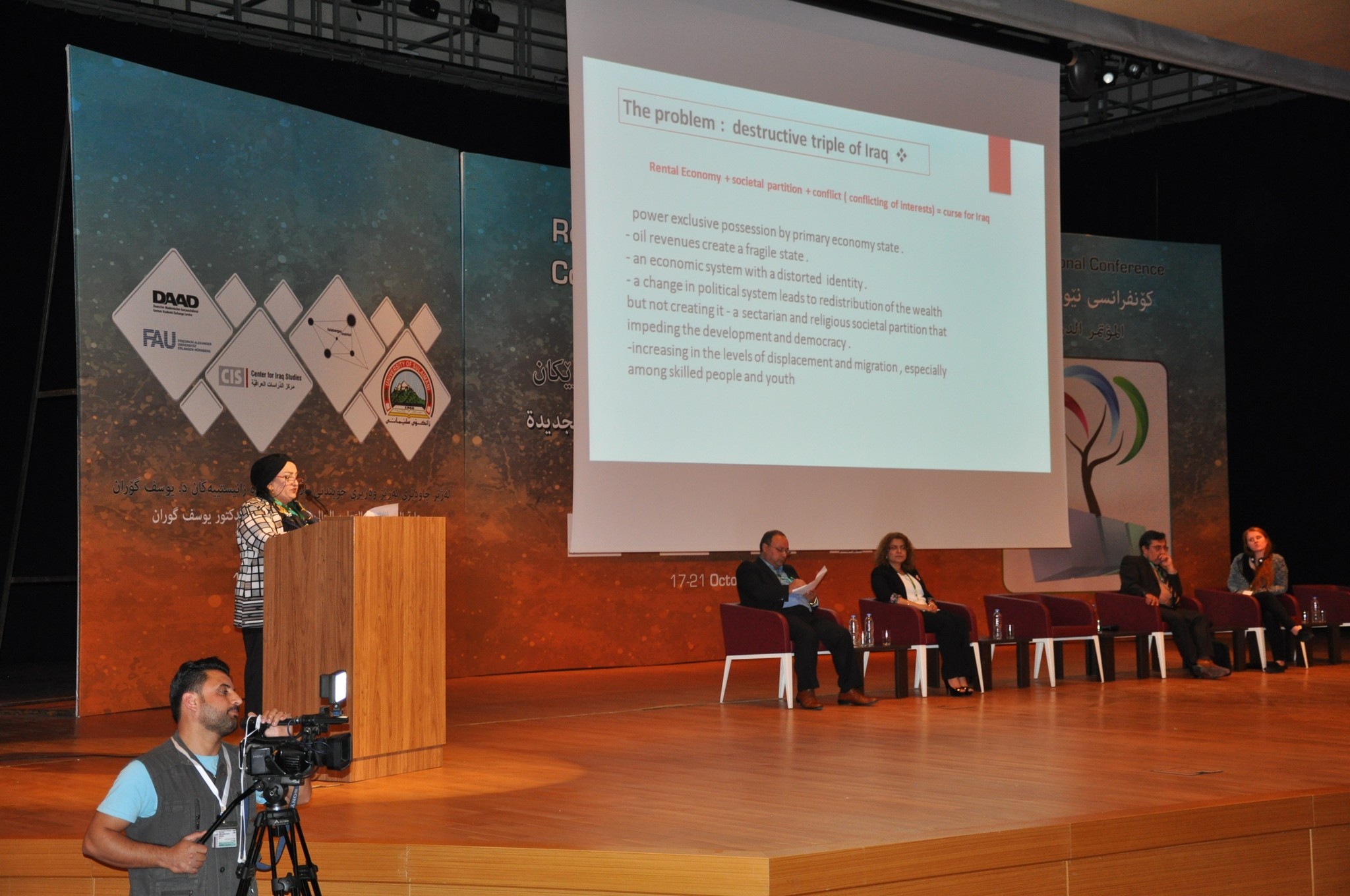
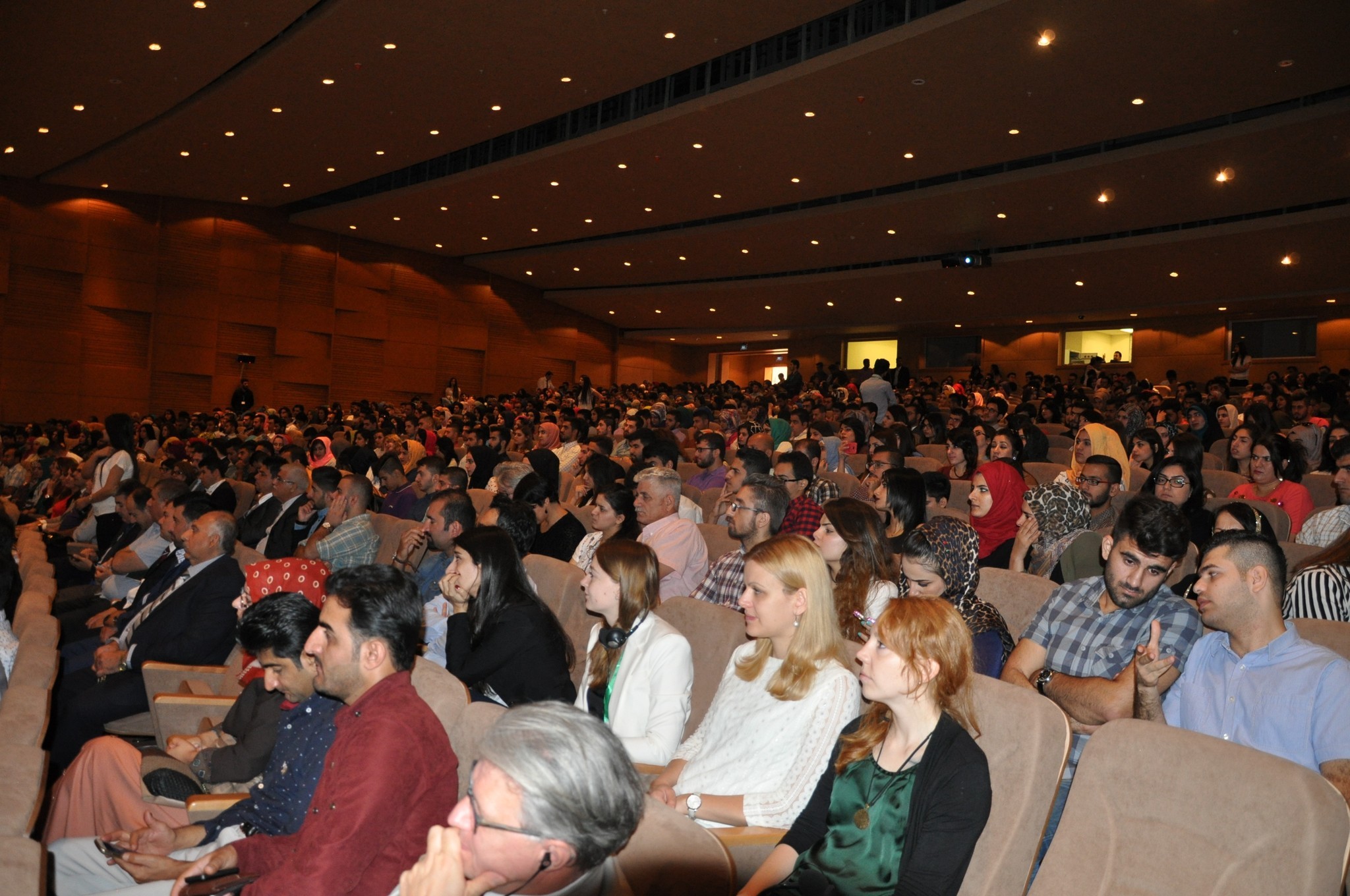
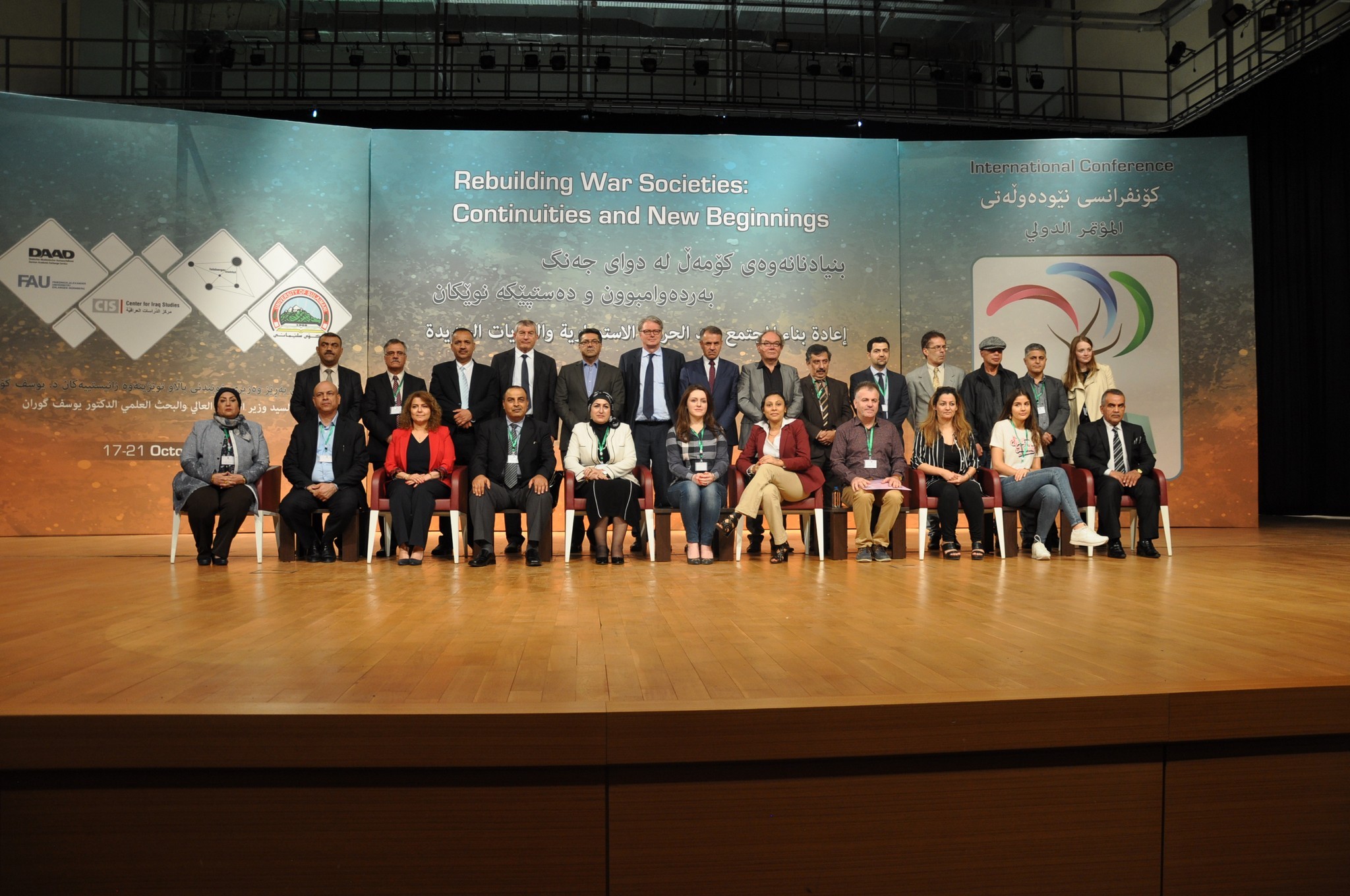
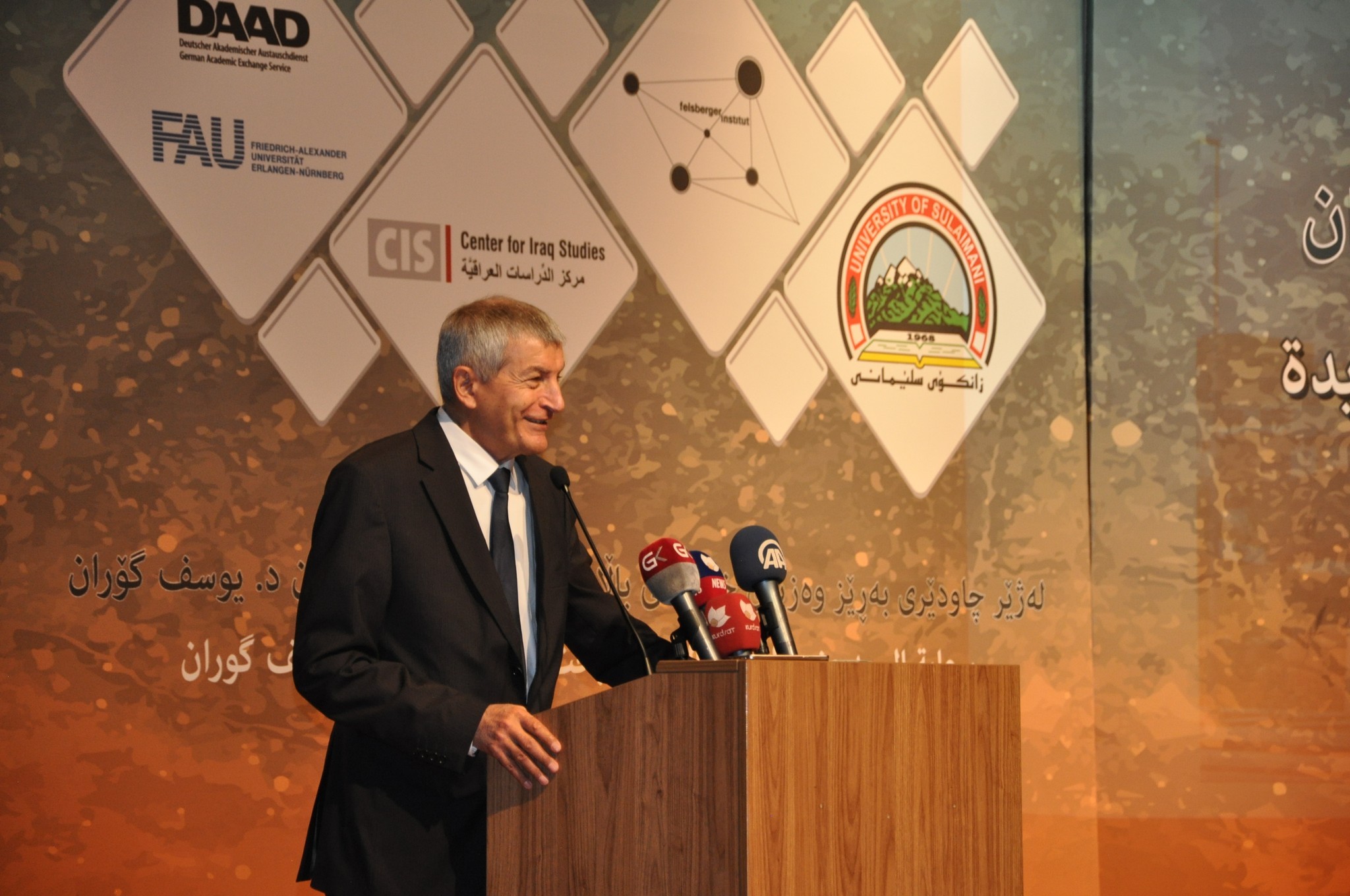
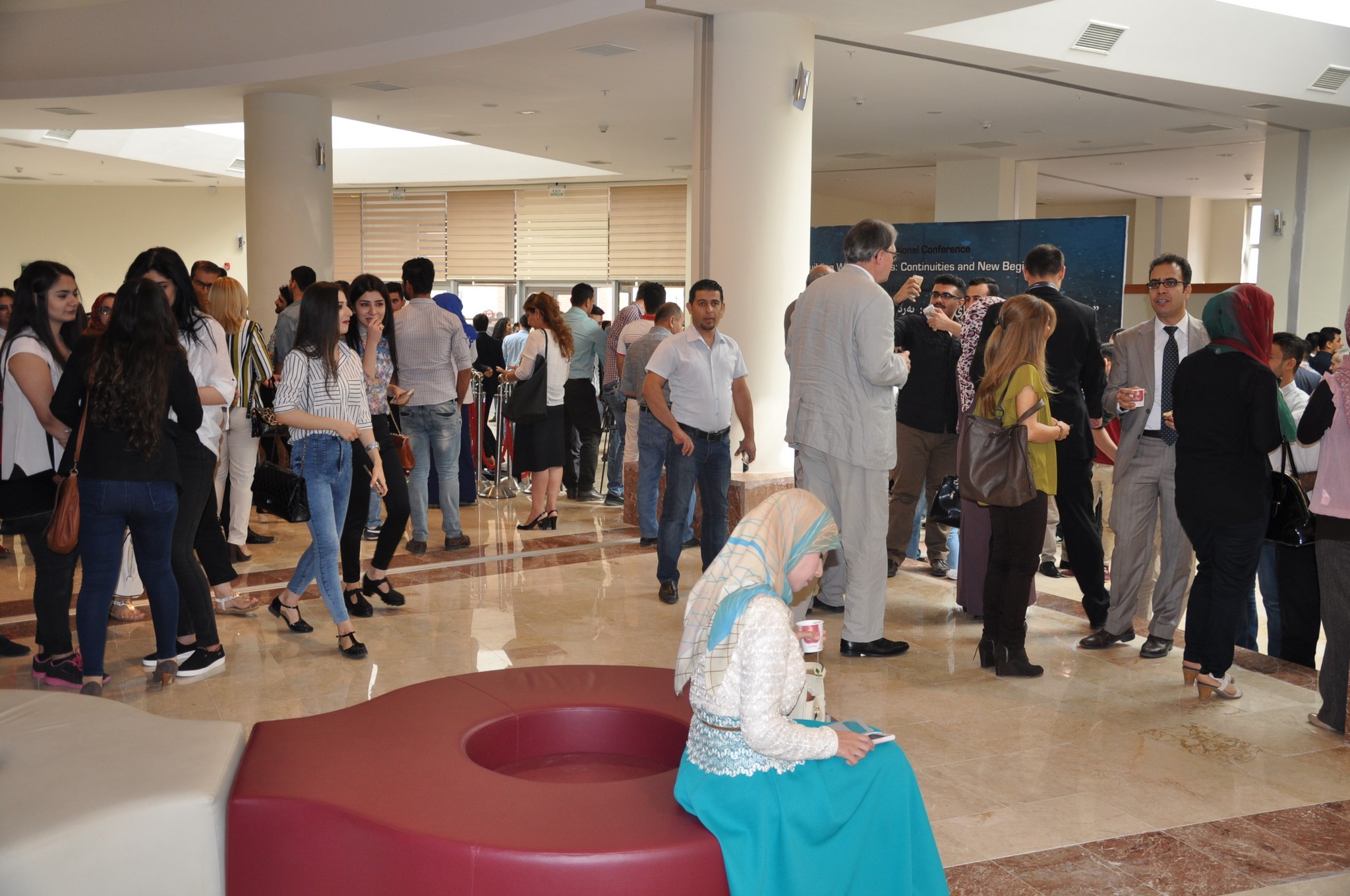
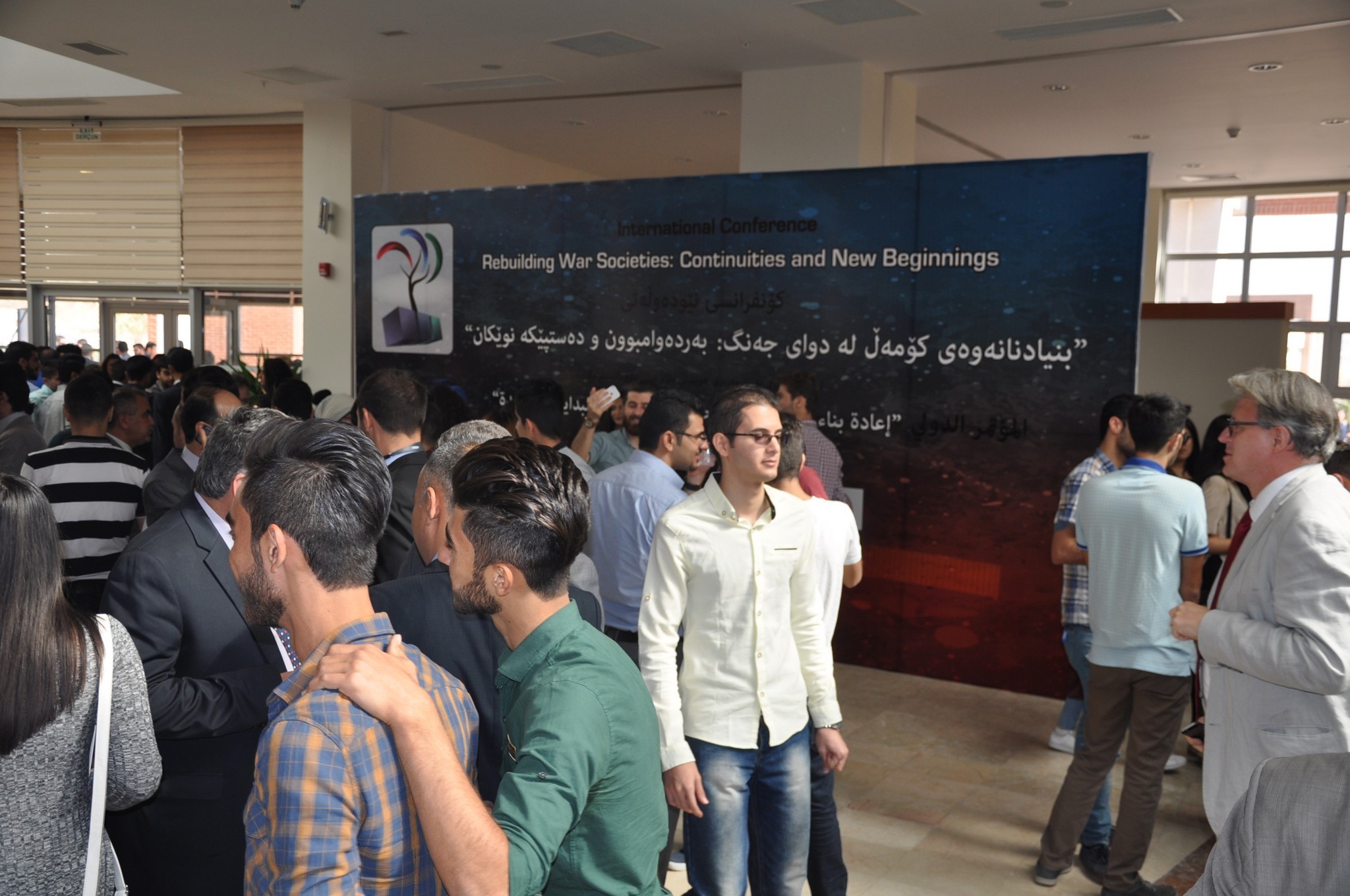
Conference impressions by Silvia Nicola, M.A.
After having spent three years researching several issues related to the Autonomous Region of Kurdistan in the north of Iraq, I have been waiting very eagerly for the right opportunity to travel to the area and put on trial my theoretical knowledge, alleged Eurocentric assumptions, other kind of prejudices, and all the potentially accumulated misunderstandings by putting these things in contrast to hard empirical data, gathered through on-site observations.
Such an opportunity has offered itself through the participation at the international conference „Rebuilding War Societies: Continuities and New Beginnings”, which has been held at the University of Sulaymanyia between the 17th and the 21st of October, 2016. A single week is by far too short a period of time to reveal all the secrets that this complex region yet holds obscured from me, but the conference offered the perfect setting for a first confrontation of the incipient work of a young researcher, like myself, with experts and fellow peers.
As the title already suggests, the topic covered by the conference has been tailored very broadly. On the one hand this has opened the path for dealing with many different aspects of the same phenomenon – war. On the other hand the broad palette of discussed subtopics might have felt overstraining for the present audience, both conference participants and guests. A quick look at the 7 panels dedicated to 5 interconnected themes reveals a very diverse spectre of analysis and a mature understanding of the complexity of the object of study. Academics of different backgrounds exchanged ideas and results about the (1+2) historical transformation of the state, society and military; (3) the link between the destruction of sustainable livelihoods in war-torn region and migration; (4) the aftermath peace and reconciliation processes; (5+6) the economic aspect of rebuilding war-torn societies; and finally, (7) the role of higher education institutions in rebuilding post-war societies. Not only were the panels accommodating various perspectives, but they were also addressing sensitive, politically charged, relevant and pressing contemporary issues.
At the same time the broad definition of the conference´s thematic spectrum opened a path “Towards a Comparative Approach to Peace and Conflict Studies”, like the title of the keynote lecture announced. This purpose has been closely backed by the internationality of the panels, with academics from different countries and continents. Nevertheless, a strong regional voice had articulated in a very professional way several challenges Iraq and the Autonomous Region of Kurdistan are currently struggling with.
Besides the countless positive aspects of this academic gathering, there have been two issues, which resulted to be very thought provoking: the struggle between finding the right balance between security and freedom, when rebuilding a war torn society, in a region of ongoing violent conflicts as well as the sometimes unreflected use of (social) media and of the unexpected results obtained through the collection of sensitive data.
Worth mentioning is also the overwhelming amount of young students, which have been present at the conference. The main lecture hall, with a perceived capacity of 600-700 hundred people, had been well attended. Additionally, the high number of pertinent questions raised by the public following the presentations, as also the vivid discussions which have unfolded between the panels testify to a high interest among the youth to learn about their own society and become an active part in its reconstruction. The fact that many attendees studied medicine, chemistry and other natural sciences has also been striking. Nevertheless, they also felt concerned and were eager to engage in a dialogue rather than passively allowing a monological format.
I am looking forward to follow-up events and projects, addressing the volatile topic of rebuilding war societies and bridging the gap between theory and practice. For me it has been a terrific experience, which has enabled so many observations, which have still to be adequately processed.